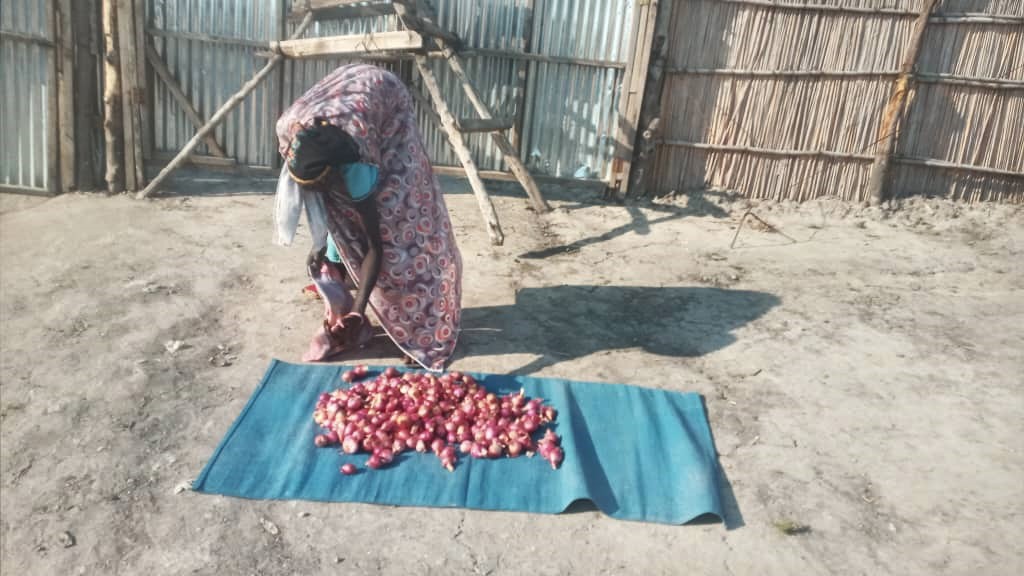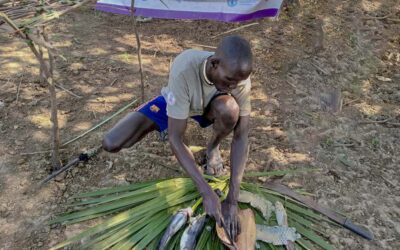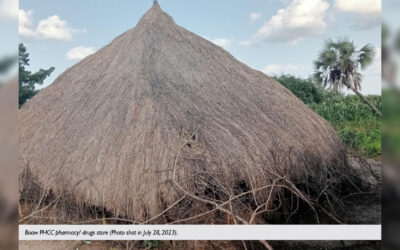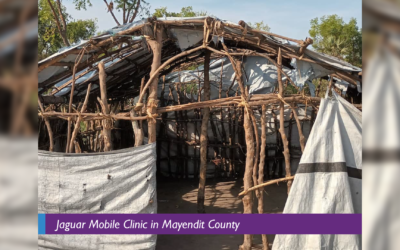In the midst of a hunger crisis in Mayendit County, Unity State, South Sudan, Nyakual Tap Machar Manyol, a determined woman, began a journey of change through agriculture. Driven by the prospect of improving her family’s future, Nyakual seized the opportunity provided by a Food Security and Livelihood (FSL) program, that was facilitated by Coalition for Humanity (CH), in collaboration with Christian Aid.
While striving to establish a sustainable and resilient means of supporting her family, she encountered another significant setback. Alongside the persistent challenge of hunger within her community, her daughter fell ill, requiring her to devote nearly one and a half months to caring for her in the hospital. This interruption in her efforts to provide for her family exacerbated their struggles, making it even more difficult to endure days without food.
“During this period of severe hardship for my family, Coalition for Humanity (CH) reached out to us and introduced me to their Food Security and Livelihood (FSL) program”. This initiative proved to be a lifeline for Nyakual and others in the community, offering essential resources and knowledge to combat the hunger crisis. Nyakual recounts how the program provided her with valuable insights and expertise in modern farming techniques. Through capacity-building sessions, she learned how to cultivate vegetables effectively and minimize the impact of climate-related risks. Moreover, the program’s support extended to providing seeds and fishing kits, enabling Nyakual to transform her kitchen garden into a sustainable source of food and income. “I planted a variety of vegetables—Sukuma, Okra, Kudra, and onions—in my kitchen garden,” she says.
The impact of Nyakual’s efforts rippled throughout her community. “Thanks to the vegetables I grew, my family no longer faces hunger,” Nyakual proudly states. “I was able to sell some of the produce and purchase sorghum during the dry season, and this ensured our survival.” Her resilience and determination inspired her neighbours to follow suit, fostering a culture of self-reliance and sustainability within the community. Nyakual’s story stands as an evidence to the transformative power of agriculture in combating hunger and poverty.
Looking ahead, Nyakual is determined to continue her journey towards self-sufficiency. “I am part of a farmer group that established a demo garden in our community,” she reveals. “My plans include expanding my onion cultivation and contributing to the overall food security of our community.” Nyakual also aspires to share her experiences with fellow farmers, offering guidance and support to empower others on their journey towards food security and resilience.
Nyakual’s story is a testament to the power of perseverance and the resilience of the human spirit. In the face of adversity, she found strength in knowledge, turning an empty land into a flourishing garden of hope and abundance. Nyakual’s journey epitomizes the impact of the Food Security and Livelihood program, implemented by Coalition for Humanity (CH) in Mayendit County. By offering comprehensive training in agricultural practices and resilience-building strategies, and providing farm inputs, and tools, CH empowered individuals like Nyakual to weather the challenges posed by the hunger crisis. The investment in community-led solutions, such as demonstration plots and capacity-building sessions, laid the groundwork for sustainable change.
As the project continued to unfold, the overall performance reflected a significant step towards addressing food insecurity and enhancing livelihoods in Mayendit County. With 500 households receiving multipurpose cash, 300 households benefiting from vegetable seeds and fishing kits, and 20 women trained on gardening/vegetable production, the project has made tangible strides in improving food security and nutrition outcomes. Additionally, the distribution of fishing kits and training on fishing techniques has expanded food sources and livelihood options for vulnerable households. Through awareness messages on protection, gender-based violence, and nutrition, over 600 individuals have been empowered to adopt best practices for a safer and healthier community.
“I am very grateful to Coalition for Humanity for this program, I don’t know what would have become of my family in the face of the severe hunger we were facing”, Nyakual concludes





0 Comments